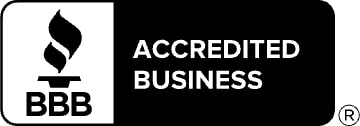A business succession plan is a legal document that states who will succeed you as an owner should you experience an untimely death or become incapacitated.
These plans vary based on the size and type of business you run but ultimately depend on your individual preferences. Generally, in addition to stating the new owner of your business, you will detail the current procedures and responsibilities unique to your company that your successor must uphold in your absence. Our experienced business successions attorneys in Charlotte, North Carolina are here to help you understand your options.
What is a Business Succession Plan?
Similar to how you control decisions regarding how your business is run now, you should also have control over its future. Having a solid plan in place alleviates stress and ensures the company you’ve created will remain profitable and be managed appropriately.
Without a plan, your family, key employees, and the health of your business may be put in jeopardy. Family disputes may arise as to who the rightful owners of your business assets are, and disgruntled employees might depart due to the chaos apparent in rapid business changes.
Additionally, without establishing a qualified successor, North Carolina’s interstate succession laws might select an individual to inherit a portion of the business assets you otherwise wouldn’t have chosen. This person might lack the knowledge needed to keep your business afloat — eventually leading to profit loss and foreseeable decline. In some situations, surviving owners might be placed in a bind dealing with the financial burden of buying out your shares of the company.
You have a right to ensure your business’s future and putting the plans in place while you still can is the best way to do so.
What are Succession Options for Business Owners in North Carolina?
You can take multiple routes when creating a succession plan for your business. Each one depends on your unique circumstances and a business succession lawyer in North Carolina can help determine the best fit for you. Here are a few options to consider:
Leaving Your Business to a Co-Owner
For companies with several business owners, the untimely death or incapacitation of a single owner can negatively impact the others financially. Setting up a buy-sell agreement establishes a plan to have your co-owners buy out your interest in the company and distribute the ownership evenly among the surviving owners. However, this option assumes that your co-owners have the financial resources to do so.
To avoid monetary complications in buying out your portion of the business, many benefit from creating a life insurance policy that pays out cash to surviving co-owners, which allows them to purchase your shares without added financial burden.
Passing Ownership to a Family Member
Many family-owned businesses might wish to have their kids take over when they’re gone. Although over 70% of family businesses intend to leave a legacy for their children, nearly half have no existing succession plan. Naming the relative you choose to be your successor early on could prevent family disputes over who takes ownership and prevents your business from being vulnerable to North Carolina’s intestate succession laws.
Depending on the size of your business, it might be beneficial for you to place your business assets into a trust to ensure they stay out of probate and go into the hands of your designated beneficiaries.
This is by no means a way to punish your existing children, but it does allow you to do proper tax planning for your heirs by helping them avoid a second round of staggering estate taxes.
Selling Your Business to a Third-Party
If you’re the sole owner and don’t intend to leave your business to your heirs or a trusted employee, selling to a third party might be best.
Before making these decisions, you must speak with a financial professional to ensure you have a current and accurate valuation of your business so it isn’t sold for less than it’s worth.
How to Create a Business Succession Plan
When creating your business succession plan, there are some key elements to include. Overall, an excellent place to start is by visualizing everything you do daily and the procedures, policies, and values you have instilled in your company over the years that you’d like to continue in your absence.
Then, make sure you include the following in your plan:
- When Your Plan Takes Effect – You could have your plan effective on a set date, like the date you plan to retire, or you can have it go into effect upon your untimely death or incapacitation.
- Who Your Successor Is – This could be a child, co-owner, loyal employee, or any other person you believe will act in the same way you would if you were still the company’s owner.
- What Your Standard Operating Procedures Are – This could be your process for the training and development of new employees, your daily responsibilities, or any other documentation that states your business’ essential functions and policies.
- The Value of Your Business – Your business should have an accurate valuation done by a financial professional to ensure your shares are bought at a reasonable price by either your co-owners or a third party.
- Details for Your Desired Change in Ownership – This is where you express how your new owner will take ownership of your business.
When to Create a Business Succession Plan
The best time to create your business succession plan is now. Having this plan in place is part of being a responsible business owner and ensures your employees and family will be taken care of should you suddenly become unable to run your business.
Additionally, having this plan in place and being transparent with who the designated successor will give your family and employees time to digest this decision — preventing conflict in the future. Our Charlotte business succession attorneys are here to help you navigate the process.
Contact a Charlotte Business Succession Planning Attorney Today for Help
Without a plan in place, your family, current employees, and company could all face an uncertain future. When you’re only focused on the daily obligations required to maintain a healthy business, you might not have time to consider who would take ownership of your business should you become ill or experience an untimely death. North Carolina business succession planning attorney Ryan Stump has the knowledge and experience to help you craft an effective succession plan that allows your business to thrive for generations.
Let our estate attorney in Charlotte, NC help take care of your succession planning needs. Contact our law firm today at (704) 766-8836.







